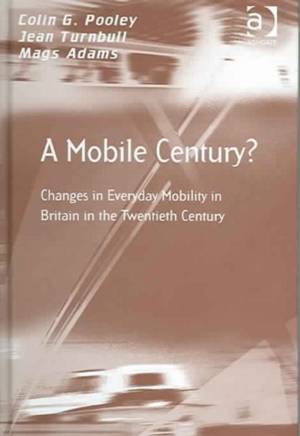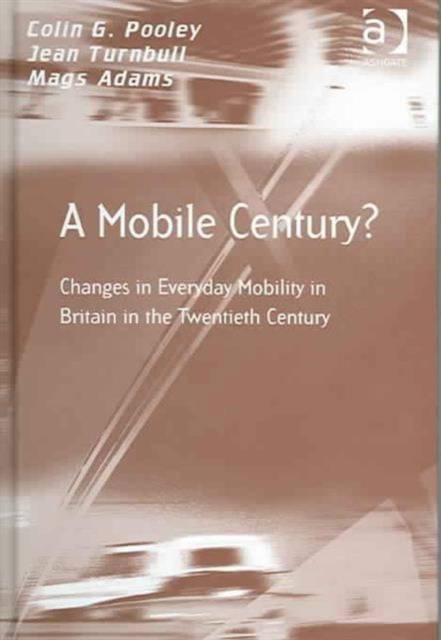
- Afhalen na 1 uur in een winkel met voorraad
- Gratis thuislevering in België vanaf € 30
- Ruim aanbod met 7 miljoen producten
- Afhalen na 1 uur in een winkel met voorraad
- Gratis thuislevering in België vanaf € 30
- Ruim aanbod met 7 miljoen producten
Zoeken
A Mobile Century?
Changes in Everyday Mobility in Britain in the Twentieth Century
Colin G Pooley, Jean Turnbull, Mags Adams
€ 182,45
+ 364 punten
Omschrijving
For most people in the developed world, the ability to travel freely on a daily basis is almost taken for granted. Although there is a large volume of literature on contemporary mobility and associated transport problems, there are no comprehensive studies of the ways in which these trends have changed over time. This book provides a detailed empirical analysis of mobility change in Britain over the twentieth century. Beginning with an explanatory theoretical overview, setting the UK case studies within an international context, the book then analyses changes in the journey to school, the journey to work, and travelling for pleasure. It also looks at the ways in which changes in mobility have interacted with changes in the family life cycle and assesses the impact of new transport technologies on everyday mobility. It concludes by examining the implications of past mobility change for contemporary transport policy.
Specificaties
Betrokkenen
- Auteur(s):
- Uitgeverij:
Inhoud
- Aantal bladzijden:
- 270
- Taal:
- Engels
- Reeks:
Eigenschappen
- Productcode (EAN):
- 9780754641810
- Verschijningsdatum:
- 28/11/2005
- Uitvoering:
- Hardcover
- Formaat:
- Genaaid
- Afmetingen:
- 156 mm x 233 mm
- Gewicht:
- 659 g

Alleen bij Standaard Boekhandel
+ 364 punten op je klantenkaart van Standaard Boekhandel
Beoordelingen
We publiceren alleen reviews die voldoen aan de voorwaarden voor reviews. Bekijk onze voorwaarden voor reviews.











